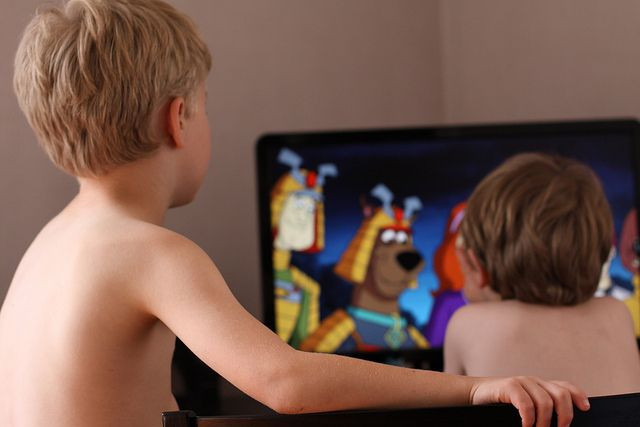Extra Hour Of TV Can Ruin A Child's Educational And Social Opportunities

A Canadian study has found that with the growing amount of time spent in front of the television, children’s vocabulary and math skills along with their ability to socialize may very well diminish. Every additional hour of television that a child 29 months of age watches, his or her crucial learning capabilities and even motor skills are reduced.
Researchers at the University of Montreal and the CHU Sainte-Justine Children’s Hospital also found that children who watch more television at a young age become targets of victimization in the classroom.
“This is the first time ever that a stringently controlled associational birth cohort study has looked at and found a relationship between too much toddler screen time and kindergarten risks for poor motor skills and psychosocial difficulties, like victimization by classmates,” said Professor Linda Pagani, lead researcher of the study.
The study looked at the data reported by parents of 991 girls and 1,006 boys in Quebec, as part of the Quebec Longitudinal Study of Child Development. The study only looked at children's television-watching frequency inside their own homes and did not take into account how often television presents itself in children’s day-to-day lives, such as at school or daycare.
“Because of kindergarten’s power to predict future productivity, the identification of modifiable factors that foretell not being ready for the transition to formal schooling represents an important goal for productive society,” Pagani noted. “These are net effects which suggest a developmental course which could ultimately compromise achievement, social relations, physical prowess, and preferences and habits toward a healthy lifestyle."
According to the American Academy of Children & Adolescent Psychiatry, if children continue their current rate of television-watching, by the time they graduate high school, they will have spent more time in front of a television than inside a classroom. Parents who allow their children to watch too much television run the risk of exposing them to inappropriate content and increasing advertisements — whether it be for junk food, fast food, or alcohol, none of which should turn into a desirable food source for children.
Where should parents draw the line? According to the American Academy of Pediatrics (AAP), it is recommended that children under the age of two should not watch any television at all, while those older than two should watch no more than one to two hours a day of quality programming. But most children don’t stop after those two hours; in fact, kids and teens, ages eight to 18, are spending almost four hours a day watching TV and almost two additional hours on the computer.
And in addition to these children developing bad habits from extra TV time, almost 74 percent of all infants and toddlers reportedly watch TV before the age two. So while pediatricians stress the first two years of life as a crucial time for brain development, TV and other electronic media, such as the computer, may very well be getting in the way of this vital period, according to KidsHealth.
Previous research includes a national study with more than 1,000 parents of children ages six months to six years. The reearchers found that 77 percent of children under the age of six turn the TV on by themselves and 62 percent of them use the remote to change channels without their parents. This points to the need for an increase in parental awareness and stricter adherence to recommended viewing restrictions from the AAP.
“These findings suggest the need for better parental awareness and compliance with existing viewing recommendations put forth by the American Academy of Pediatrics,” said Pagani. “The AAP discourages watching television during infancy and recommends not more than two hours per day beyond age two. It seems that every extra hour beyond that has a remarkably negative influence.”
Source: Barnett T, Fitzpatrick C, Pagani L. Early childhood television viewing and kindergarten entry readiness. Pediatric Research. 2013.



























